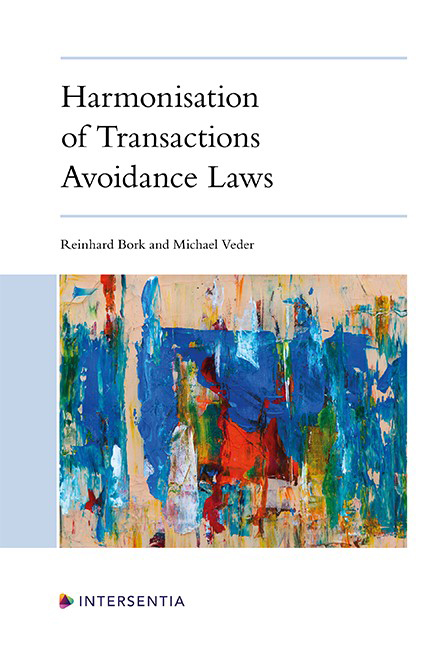Denmark
Published online by Cambridge University Press: 26 May 2022
Summary
PART 1. DETAILS OF YOUR NATIONAL TRANSACTIONS AVOIDANCE LAW
I. SYSTEM
Question 1. Is your transactions avoidance law (for terminology cf. Introduction at C.) part of insolvency law or is it in parts or as a whole incorporated in other fields of law (e.g. general civil law, commercial law, company law)?
Transactions avoidance law is a part of Danish Insolvency Law and in general governed by the Danish Bankruptcy Act (DBA) chapter 8. A few transactions are governed in legislation outside the DBA, i.e. repayment of disproportionate payments or premiums to certain assurances (Danish Insurance Contract Act §§117 and 118) and repayments of variable remuneration that has been awarded to a manager of a company after the time the company became insolvent (Danish Company Act, §138 (2)).
Question 2. Are the rules on transactions avoidance law in your jurisdiction the same for entrepreneurs/legal entities and consumers/natural persons? If not, please explain the differences and take it into account when completing this questionnaire.
Yes.
Question 3. Are the rules on transactions avoidance law in your jurisdiction the same for liquidation and restructuring proceedings (if any)? If not, please explain the differences and take it into account when completing this questionnaire.
Substantially yes, but procedurally there are some differences. In the Danish restructuring procedure, which is a debtor-in-possession procedure, the decision to file an action on transactions avoidance or selling the claim must be voted and adopted upon by the creditors at a creditors’ meeting (DBA §§12j and 12k), whereas this is a decision solely taken by the appointed Insolvency Practitioner in the liquidation procedure.
Question 4. Are the rules on transactions avoidance law in your jurisdiction the same for debtor-in-possession proceedings (if any)? If not, please explain the differences and take it into account when completing this questionnaire.
See Question 3.
Question 5. Does your transactions avoidance law distinguish various avoidance grounds (e.g. preferences, transactions at an undervalue, etc.) or is there only one general clause for all kinds of transactions?
Yes. DBA chapter 8 has eight specialised provisions regarding: gratuitous performances (gifts (DBA §64); disclaimed inheritance (DBA §65) and exorbitant remuneration of connected persons (DBA §66)); payment of debt (DBA §67); bills of exchange (DBA §68); set-off(DBA §69); incongruent security (DBA §70); and avoidance of floating charges (DBA §70a).
- Type
- Chapter
- Information
- Harmonisation of Transactions Avoidance Laws , pp. 703 - 730Publisher: IntersentiaPrint publication year: 2022



